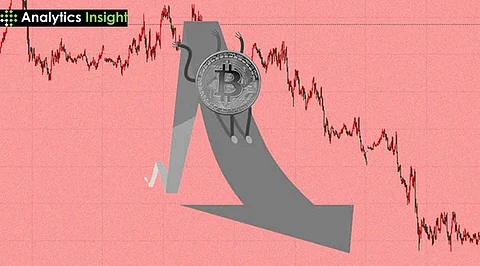

Crypto Crashes - The crypto market, often heralded as a revolutionary alternative to traditional financial systems, has been both a boon and a bane in recent years. Decentralized Finance (DeFi) has unlocked unprecedented access to financial tools, yet its rapid growth has also exposed vulnerabilities that have led to substantial losses for investors. From technical flaws to outright scams, the sector is plagued with risks. A recent example is the controversy surrounding WazirX, highlighting the importance of increased regulation and scrutiny in the space.
DeFi allows users to lend, borrow, and trade without relying on traditional financial intermediaries. Its promise lies in decentralization, transparency, and inclusivity. Platforms like Uniswap, Aave, and Compound have democratized access to financial services. However, as the ecosystem expands, so do its vulnerabilities.
Smart contracts automate transactions in DeFi, but any bug or flaw can lead to catastrophic losses. In 2022, the Ronin Network, used for the popular Axie Infinity game, suffered a $625 million hack due to security vulnerabilities. Similar exploits have continued to plague the sector, exposing the inherent risks of complex coding structures.
Many DeFi platforms allow users to borrow assets against collateral. The volatility of cryptocurrencies often leads to forced liquidations, wiping out investors' funds. Events like the Terra-Luna crash in May 2022 showcased how over-leveraging and algorithmic flaws could lead to the collapse of entire ecosystems.
WazirX, one of India’s leading cryptocurrency exchanges, recently came under scrutiny for alleged financial irregularities and compliance failures. The exchange, known for facilitating crypto trading in India, faced accusations of enabling illicit financial activities and failing to meet regulatory standards.
In January 2025, Indian regulatory agencies launched an investigation into WazirX for allegedly facilitating money laundering and other illicit activities. Reports indicated that the platform allowed transfers of cryptocurrency worth millions without proper Know Your Customer (KYC) verifications. This led to concerns about the exchange's role in enabling bad actors to exploit loopholes.
WazirX's association with Binance, the world's largest cryptocurrency exchange, further complicated matters. Binance initially distanced itself, claiming that it only provided wallet services to WazirX. This controversy caused panic among Indian investors, many of whom withdrew funds, leading to a liquidity crunch. WazirX’s troubles also highlighted the need for stricter regulations in the Indian crypto space.
The WazirX case is only the tip of the iceberg. The crypto industry has seen several large-scale scams and fraudulent schemes, affecting millions of investors worldwide.
In November 2022, FTX, a major cryptocurrency exchange, filed for bankruptcy after reports of mismanagement and misuse of customer funds surfaced. Founder Sam Bankman-Fried faced multiple allegations of fraud, resulting in billions in investor losses. The FTX collapse significantly dented investor confidence in centralized exchanges.
Often dubbed the "Bitcoin Killer," OneCoin promised massive returns on investments but turned out to be a Ponzi scheme. Its founders, including Ruja Ignatova, defrauded investors of over $4 billion. Despite global investigations, Ignatova remains at large, symbolizing the challenges of policing international crypto scams.
BitConnect’s lending program promised returns of up to 1% per day, attracting thousands of investors. However, it was exposed as a Ponzi scheme in 2018, leading to a market crash and significant losses.
The decentralized and borderless nature of cryptocurrencies makes them attractive for innovation but also creates challenges for regulators. Without clear guidelines, many platforms operate in legal gray areas, increasing the risk of fraud and exploitation.
The U.S. Securities and Exchange Commission (SEC) has intensified its scrutiny of crypto projects, classifying many tokens as securities. Cases against Ripple (XRP) and Coinbase exemplify the ongoing regulatory push.
India introduced a 30% tax on crypto income and a 1% Tax Deducted at Source (TDS) on transactions in 2022. However, regulatory clarity remains elusive. The WazirX controversy underscores the need for stricter compliance mechanisms.
The EU's Markets in Crypto-Assets (MiCA) regulation, set to be implemented in 2024, aims to provide a comprehensive framework for crypto operations, focusing on transparency and consumer protection.
While regulators work towards addressing systemic issues, investors must take proactive steps to safeguard their funds.
Before investing in any project, thoroughly research its team, technology, and use case. Avoid projects promising unrealistic returns.
Stick to well-established exchanges with robust security measures and compliance practices. Platforms like Binance and Coinbase, despite their controversies, offer a higher degree of reliability than smaller, unregulated exchanges.
